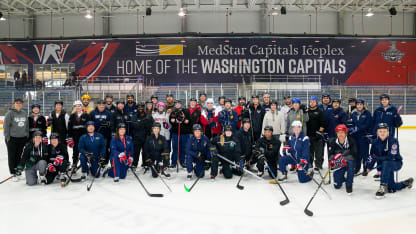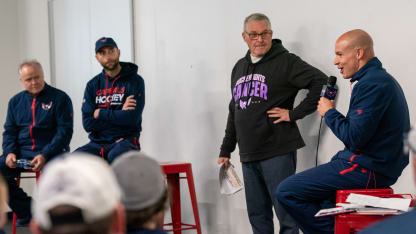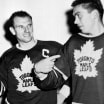ARLINGTON, Va. -- Washington Capitals coach Spencer Carbery looked across the room full of youth hockey coaches and reminisced.
“My first year coaching pro, it would have been 13 years ago … part-time, I coached the squirt single-A Charleston (South Carolina) Wolverine youth hockey team,” Carbery said. “When you see those smiles and you see kids go through a practice and they’re having fun and they’re enjoying it and you can be a part of that, that’s really cool.”
More than 180 local youth hockey coaches thought it was really cool that the first-year coach and his staff took the time to coach them at the team's Coaches Day clinic Friday at MedStar Capitals IcePlex, the Capitals practice facility.
The coaches, from pee wee to juniors, listened to Carbery, along with assistants Mitch Love, Kirk Muller and Kenny McCudden, goalie coach Scott Murray, video coach Emily Engel and others.
But first, they watched the staff put Capitals players through a brisk practice ahead of their game against the Columbus Blue Jackets on Saturday (7:30 p.m. ET; MNMT, BSOH).




















